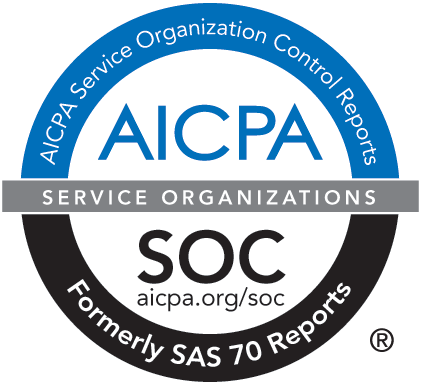Back to School: Learning the Language of Charitable Gift Planning Part 4
October 24, 2025 - Pencils, paper, and… Pugh Clauses? In today’s installment of our charitable gift planning language series, we are looking at terms related to minerals management.
A gift of mineral interests to charity can be a win/win, potentially providing tax benefits for the donor and a regular income stream for the charity. In fact, HighGround’s Minerals Management team currently manages more than 5,000 producing properties for over 70 nonprofit clients.
Understanding the vocabulary associated with this powerful, but often complex, asset can help donors and charities reach the full potential of mineral gifts. Below, we’ll be breaking down key terms and concepts of mineral assets.
Minerals Management Glossary
- Ad Valorem taxes: A tax whose amount is based on the assessed value of an item or property. It is applied only when minerals are actively produced.
- Division Order: A legal document listing the individuals or entities entitled to production revenue from a well, along with their respective shares.
- Executive Rights: The right to lease or develop a mineral interest. Executive rights can be held separately from mineral ownership.
- Landman: A professional who negotiates mineral leases, verifies title, and manages well production and payments.
- Landowner: An individual or entity that holds legal title to a parcel of land. May have surface rights, subsurface rights, or both.
- Lease Bonus: A one-time payment given to the lessor at the beginning of a mineral lease.
- Leasehold Interest: The rights held by a lessee to use land or property for a defined period, often in the context of mineral leases. When the owner of a mineral interest leases the interest to an individual or company, the individual receiving the lease (the lessee) has a “leasehold interest,” or working interest or operating interest. The lessee has the rights to use the surface of the property to obtain the minerals, to incur costs of exploration and production of the minerals, and to retain profits, subject to the lessor’s retained rights.
- Mineral Interests/Subsurface Rights: Ownership of the rights to minerals, such as oil and gas, within a specific tract of land.
- Mineral Lease: A legal contract where a mineral owner, or lessor, grants an oil or gas company the right to explore, drill and produce minerals on a property for a set amount of time.
- Mineral Owner: An individual or entity that owns the rights to extract minerals under a tract of land but not the surface of the land itself. The mineral owner has the right to remove the minerals along with the right to execute a lease allowing someone else the opportunity to remove them. This right is superior to the surface owner’s rights because, in Texas and many other states, the mineral estate is the dominant estate.
- Non-Participating Royalty Interest (NPRI): A royalty interest “carved out” of a prior interest that receives a share of production revenue but does not participate in lease negotiations or receive bonuses.
- Operator: The party responsible for managing drilling operations for an oil or gas well.
- Overriding Royalty Interest (ORRI): A royalty interest carved out of a working interest, typically to compensate landmen, geologists, attorneys or other stakeholders.
- Personal Property: Movable assets such as vehicles, art or jewelry. Donations of personal property may require a qualified appraisal.
- Pugh Clause: A provision in a mineral lease that requires the severance of non-producing or undeveloped acreage and depths at the end of the primary term. This prevents an indefinite land tie-up and promotes development.
- Royalty Interest: In exchange for granting the lease, the lessor typically receives a share in the production of the mineral, free of the costs of producing it.
- Royalty Interest Shut-In: A royalty interest tied to a non-producing well. May still qualify as a charitable gift, depending on context.
- Royalty Payment: Regular payments made to royalty interest owners, usually based on the volume or price of oil, gas or minerals extracted.
- Shut-In: A non-producing oil or gas well.
- Surface Owner: An individual or entity who has surface rights to a tract of land but not the rights to minerals beneath the surface. The surface owner is not entitled to execute a lease. Yet, the surface owner is affected by leasing activity because the surface is used to access the mineral asset.
- Surface Rights/Interest: Refers to the ownership of the surface of a property for agricultural, residential, or commercial purposes.
- Working Interest: An ownership stake that allows for exploration and production of minerals but carries liability for operating costs. Working interests are generally discouraged due to liability exposure, Unrelated Business Taxable Income (UBTI) implications and limited deductibility.
What’s Next?
The world of minerals management can feel daunting with its terminology, tax considerations and legal contracts. If you’re interested in exploring more about how HighGround can assist you with your mineral assets, as either a donor or charity, reach out to our Minerals Management team at oilgasandmineralsmanagement@highgroundadvisors.org.
Remember, while this glossary is a great reference, charitable gift planning is personal and often complex. Our trust and legal team is here to help create customized strategies aligned with your values, financial goals and philanthropic mission.
Ready to explore how your minerals assets can support the causes you care about? Visit highgroundadvisors.org/gift-planning or contact us directly at 214.978.3300 or legalteam@highgroundadvisors.org.
Be sure to join us next time as we explore key investment terms every philanthropist should know in our last blog of the series.
Read More
If you haven’t already, be sure to check out the rest of our ABCs of Charitable Gift Planning series to learn more:
Back to School: Estate Planning
Back to School: Charitable Giving Vehicles
Back to School: Noncash Assets
Learn more about minerals here:



